2017 50th Annual Meeting
50 Years of Research: Looking Back and Moving Forward
13–16 July 2017
Marriott Wardman Park—Washington D.C.
Welcome from the Program Chairs and President
“We encourage you to attend SSR’s 50th Anniversary Meeting, “50 Years of Research: Looking Back and Moving Forward,” to be held in Washington, DC, at the Marriott Wardman Park Hotel this 13–16 July 2017. It is our hope that, together, we will create and enjoy a celebratory meeting that will simultaneously recognize the contributions of the SSR to society and highlight reproductive biology as the cornerstone of developing fields such as stem cell biology, epigenetics, and the developmental origins of health and disease (DOHaD).
We are thrilled that Professor and Fellow of the Royal Society Azim Surani of the Gurdon Institute of Cancer and Developmental Biology will deliver the opening keynote lecture. The President’s Symposium will be on DOHaD, and we are pleased that Professors Mark Hanson (University of Southampton) and Tracy Bale (University of Pennsylvania) are confirmed to speak. There will also be a special session on Propelling High-Impact Outcomes in Reproductive Biology: From Bench to Commercialization to Entrepreneur. To highlight the roots of the SSR in animal reproductive biology, we are working with the American Society of Animal Science to host a joint workshop. Taking advantage of our location in DC, there will be a panel on Translating Reproductive Science into Public Health Policies, Medical Practice, and Community Interventions, with stakeholders from government and NGOs to discuss the knowledge gaps that need to be filled by research to better inform reproductive health policies and practices.
We look forward to welcoming you to Washington, DC, and celebrating together.”
— Kate Loveland, Ph.D. and Jacques J. Tremblay, Ph.D., 2017 SSR Program Co-Chairs
— Janice Bailey, Ph.D., SSR President
Scientific Programs
Plenary Sessions
Keynote Address
- Azim Surani, Ph.D. (Gurdon Institute, University of Cambridge, Cambridge, UK). Principles of Early Human Development and the Germ Cell Program.
Historical Perspective Lectures
- Asgerally T. Fazleabas, Ph.D. (Michigan State University, Grand Rapids, Michigan, USA). Maternal Recognition of Pregnancy: A Brief History of Life’s Earliest Dialogue.
Expanding Horizon Keynote Lectures
- Carlos Simón, M.D., Ph.D. (Universitat de València; IGNEOMIX, València, Spain). Met and Unmet Needs in Human Endometrial Biology and Medicine.
- Andrew Sinclair, Ph.D. (Murdoch Childrens Research Institute, Melbourne, Victoria, Australia). Reproductive Research for Medical and Agricultural Benefit.
- Renee Reijo Pera, Ph.D. (Montana State University, Bozeman, Montana, USA). Human Germ Cell Development.
Dr. Kwang Yul Cha 2017 President’s Symposium on Developmental Origins of Health and Disease
- Tracy L. Bale, Ph.D. (Perelman School of Medicine at the University of Pennsylvania, Philadelphia, Pennsylvania, USA). Parental Stress and Epigenetic Programming of Offspring Development.
- Mark Hanson, Ph.D. (University of Southampton, Southampton, UK). DOHaD: Looking Back and Moving Forward.
Endocrine Disruptors Lecture
- Barbara Hales, Ph.D. (McGill University, Montréal, Québec, Canada). The Future of Endocrine Disrupting Chemicals: From Regrettable Substitutions to Responsible Replacements.
Propelling High-Impact Outcomes in Reproductive Biology: From Bench to Commercialization to Entrepreneur
- Kwang Yul Cha, M.D. (Founder, CHA Health Systems and CHA University, South Korea). Current Status of Stem Cell-Based Therapy in CHA Health Systems.
- Teresa Woodruff, Ph.D. (Feinberg School of Medicine, Northwestern University, Chicago, Illinois, USA). Engineering Reproduction.
- Clifford Librach, M.D. (CReATe Fertility Clinic, Toronto, Ontario, Canada). Development of a High Impact Translational Research Program Within a Reproductive Health Care Program.
- Daniel S. Johnston, Ph.D. (Eunice Kennedy Shriver National Institute of Child Health and Human Development, Bethesda, Maryland, USA). Contraceptive Method Development Within the NIH: An Atypical Product Development Paradigm.
Heritage Luncheon
- Janice M. Bahr, Ph.D. (University of Illinois–Urbana-Champaign, Urbana, Illinois, USA). Philip J. Dziuk: Founder of SSR, Scientist, Veteran, and Athlete.
Concurrent Symposia Themes
Early Development and Pregnancy
- Fertilization: When Sperm Meet the Egg. Co-Chairs: Richard Cardullo, Ph.D. (University of California, Riverside, Riverside, California, USA) and Chathura Priyadarshana (University of Tsukuba, Tsukuba, Japan).
- Invited Talk: Peter Sutovsky, Ph.D. (University of Missouri, Columbia, Missouri, USA). Sperm Mitophagy during Fertilization.
- Invited Talk: Haruhiko Miyata, Ph.D. (Osaka University, Suita, Osaka, Japan). Sperm Motility and Its Competency for Mammalian Fertilization.
- Immunobiology of Conception and Pregnancy. Co-hairs: Troy Ott, Ph.D. (Pennsylvania State University, State College, Pennsylvania, USA) and John Schjenken, Ph.D. (University of Adelaide, Adelaide, South Australia, Australia).
- Invited Talk: Danny J. Schust, M.D. (University of Missouri School of Medicine, Columbia, Missouri, USA). How Can We Best Study the Immunobiology of Human Implantation?
- Invited Talk: John Bromfield, Ph.D. (University of Florida, Gainesville, Florida, USA). Uterine Infection and Infertility: How Microbial Infection of the Reproductive Tract Causes Ovarian Dysfunction in the Dairy Cow.
- Implantation and Placentation. Co-Chairs: Hongmei Wang, Ph.D. (Institute of Zoology, Chinese Academy of Sciences, Beijing, PR China) and Fei Zhao, Ph.D. (NIEHS, Research Triangle Park, North Carolina, USA).
- Invited Talk: Sudhansu K. Dey, Ph.D. (Cincinnati Children’s Hospital Medical Center, Cincinnati, Ohio, USA). Molecular Interplay of Uterine Cell Polarity Directing Positioning of the Implantation Chamber.
- Invited Talk: Mario Binelli, Ph.D. (Universidade de São Paulo, São Paulo, Brazil). Programming Endometrial Receptivity in Cattle.
- CHA Health Systems Symposium on Preimplantation Development. Chair: Zhiming Han, Ph.D.(Institute of Zoology, Chinese Academy of Sciences, Beijing, PR China) and Estela Rose Araujo (University of Sao Paulo, Sao Paolo, Brazil).
- Invited Talk: Hannah Brown, Ph.D. (University of Adelaide, Adelaide, South Australia, Australia). There’s More than Meets the Eye: The Next Generation of Noninvasive Embryo Diagnostics for the IVF Clinic!
- Invited Talk: Peter J. Hansen, Ph.D. (University of Florida, Gainesville, Florida, USA). Regulation of Preimplantation Developmental by Maternally Derived Embryokines.
- Pregnancy and Parturition. Co-chairs: Lois Salamonsen, Ph.D. (Hudson Institute of Medical Research, Clayton, Victoria, Australia) and Shavahn Loux, Ph.D. (University of Kentucky, Lexington, Kentucky, USA).
- Invited Talk: Mala Mahendroo, Ph.D. (University of Texas Southwestern Medical Center, Dallas, Texas, USA). Progesterone and Estrogen Collaborate to Regulate ECM Dynamics in the Pregnant Cervix.
- Recent Developments in Contraception. Chair: Eva Dimitriadis, Ph.D. (Hudson Institute of Medical Research, Clayton, Victoria, Australia) and Shreya Patel, Ph.D. (University of Illinois at Urbana-Champaign, Urbana, Illinois, USA).
- Invited Talk: John Amory, M.D. (University of Washington, Seattle, Washington, USA). Inhibition of Testicular Retinoic Acid Biosynthesis for Male Contraception.
- Invited Talk: Diane M. Duffy, Ph.D. (Eastern Virginia Medical School, Norfolk, Virginia, USA). Ovulation Inhibition: Opportunities for Novel Contraceptive Development.
Epigenetics, Environment and DOHaD
- Environmental Impact on Reproductive Pathologies. Co-Chair: Kwan Hee Kim, Ph.D.(Washington State University, Pullman, Washington, USA) and Saniya Rattan (University of Illinois at Urbana-Champaign, Urbana, Illinois, USA).
- Invited Talk: Gail S. Prins, Ph.D. (University of Illinois College of Medicine at Chicago). Bisphenol A Reprograms Prostate Stem Cells and Predisposes to Carcinogenesis.
- Invited Talk: Sheela Sathyanarayana, M.D., M.P.H. (Seattle Children’s Hospital Center for Child Health, Behavior, and Development, Seattle, Washington, USA). Prenatal Phthalate Exposure Impacts on Newborn Reproductive Outcomes.
- Epigenetic Control of Developmental Programming. Chair: Sue Hammoud, Ph.D. (University of Michigan Medical School, Ann Arbor, Michigan, USA) and John Fredrick Odhiambo, Ph.D. (University of Wyoming, Laramie, Wyoming, USA).
- Invited Talk: Serge McGraw, Ph.D. (Université de Montréal, Montréal, Québec, Canada). Early Embryonic Alcohol Exposure Leads to Permanent DNA Methylation Alterations in Mouse Brain and Placenta.
- Invited Talk: Bradley R. Cairns, Ph.D. (Huntsman Cancer Institute, Salt Lake City, Utah, USA). Transcription and Epigenetic Programs That Drive Developmental Decisions in Germline Stem Cells and Early Embryos.
- Epigenetics in the Germline. Co-Chairs: Satoshi Namekawa, Ph.D. (Cincinnati Children’s Medical Center, Cincinnati, Ohio, USA) and Kahina Ghanem (Pennsylvania State University, State College, Pennsylvania, USA).
- Invited Talk: Hiroyuki Sasaki, M.D., Ph.D. (Medical Institute of Bioregulation, Kyushu University, Fukuoka, Japan). Global Landscape and Regulatory Principles of DNA Methylation Reprogramming during Germ Cell Specification In Vitro.
- Invited Talk: Xin Chen, Ph.D. (Johns Hopkins University, Baltimore, Maryland, USA). Breaking Symmetry: Asymmetric Epigenetic Inheritance during Drosophila Germline Stem Cell Asymmetric Division.
- Epigenetics Mediating Transgenerational Impact. Co-Chairs: Wei Yan, Ph.D. (University of Nevada, Reno, Nevada, USA) and Christian Andersen (University of Georgia, Athens, Georgia, USA).
- Invited Talk: Michael Skinner, Ph.D. (Washington State University, Pullman, Washington, USA). Environmentally Induced Epigenetic Inheritance of Sperm Epimutations and Disease: Exposure and Disease Diagnostics in Sperm.
- Invited Talk: Victor Corces, Ph.D. (Emory University, Atlanta, Georgia, USA). The Complexity of the Sperm Epigenome Explains Transgenerational Inheritance of Obesity.
- Evolutionary Perspectives on Reproductive Ecology. Co-chairs: Deborah Sloboda, Ph.D.(McMaster University, Hamilton, Ontario, Canada) and Emi Tucker (University of Illinois at Urbana-Champaign, Urbana, Illinois, USA).
- Invited Talk: Gillian R. Bentley, Ph.D. (Durham University, Durham, UK). Effects of Childhood Development on Reproductive Function and Health across the Lifecourse.
- Invited Talk: George Bentley, Ph.D. (University of California, Berkeley, Berkeley, California, USA). GnIH: An Integrator of Environmental Cues for Reproduction.
- Impact of Maternal Nutrition and Stress on the Offspring. Co-Chairs: Jennifer Wood, Ph.D.(University of Nebraska-Lincoln, Lincoln, Nebraska, USA) and Pancharatna Katti, Ph.D. (Karnatak University, Dharwad, India).
- Invited Talk: Laura Schulz, Ph.D. (University of Missouri School of Medicine, Columbia, Missouri, USA). Leptin as a Mediator of Maternal Nutritional Influences on Offspring?
- Invited Talk: Michelle Lane, Ph.D. (University of Adelaide, Adelaide, South Australia, Australia). The Sperm Legacy: How Does the Sperm Transmit Paternal Health Signals to the Offspring.
Models and Physiology of Reproduction
- Clinical Issues in Reproduction. Co-Chairs: Nabal José Bracero Serrano, M.D. (San Juan, Puerto Rico) and Macarena B. Gonzalez (Robinson Research Institute, University of Adelaide, Adelaide, South Australia, Australia).
- Invited Talk: Leendert H. Looijenga, Ph.D. (Erasmus MC, Rotterdam, Netherlands). Human Testicular Germ Cell Tumors: Integrated Analyses and Clinical Implications.
- Invited Talk: Kelle H. Moley, M.D. (Washington University School of Medicine in St. Louis, St. Louis, Missouri, USA). Zika Virus Infection Damages the Testes in Mice.
- Gamete and Reproductive Conservation. Co-Chairs: Ina Dobrinksi, D.V.M. (University of Calgary, Alberta, Canada) and Taylor Pini (University of Sydney, Sydney, New South Wales, Australia).
- Invited Talk: Budhan S. Pukazhenthi, Ph.D. (Smithsonian Conservation Biology Institute, Washington, DC, USA). How Reproductive Science Is Addressing the Highest Priorities in Wildlife Conservation.
- Invited Talk: Goro Yoshizaki, Ph.D. (Tokyo University of Marine Science and Technology, Tokyo, Japan). Production of Viable Trout Offspring Derived from Frozen Whole Fish.
- Immunobiology of Male Reproductive Function. Co-Chairs: Jannette Dufour, Ph.D. (Texas Tech University, Lubbock, Texas, USA) and Bindu Menon (University of Michigan, Ann Arbor, Michigan, USA).
- Invited Talk: Monika Fijak, Ph.D. (Justus-Liebig-Universität-Gießen, Gießen, Germany). New Facets of an Old Hormone: Testosterone as an Immunomodulator in the Testis and Beyond.
- Invited Talk: Maria Christina Werneck de Avellar, Ph.D. (Universidade Federal de São Paulo, São Paulo, Brazil). Beta Defensins and Their Role in Epididymal Morphogenesis.
- Milton KH Leong Symposium on Recent Breakthroughs in Androgen Control of Puberty and Fertility. Co-chairs: Lee Smith, Ph.D. (The Queen’s Medical Research Institute, Edinburgh, UK) and Andrew Pask, Ph.D. (University of Melbourne, Melbourne, Australia).
- Invited Talk: Robert Viger, Ph.D. (Centre Hospitalier de l’Université Laval, Québec, Canada). LH Signaling and Androgen Production in Males: New Pieces to the Puzzle.
- Invited Talk: William Walker, Ph.D. (Magee-Womens Research Institute, Pittsburgh, Pennsylvania, USA). Regulation of Spermatogenesis by Classical and Nonclassical Testosterone Signaling.
- Reproductive Neuroendocrinology—Supported by the Virendra B. Mahesh Neuroendocrine Program Fund. Co-Chairs: Daniel Bernard, Ph.D. (McGill University, Montreal, Quebec, Canada) and William T. Farmer, Ph.D. (US Environmental Protection Agency, Raleigh, North Carolina, USA).
- Invited Talk: Suzanne Moenter, Ph.D. (University of Michigan Medical School, Ann Arbor, Michigan, USA). Prepubertal Development of the Gonadotropin-Releasing Hormone Neuronal Network.
- Invited Talk: Amy Navratil, Ph.D. (University of Wyoming, Laramie, Wyoming, USA). Citrullination: Post-Translational Regulation of Gonadotropin Synthesis and Secretion.
- Technologies for Reproductive Biology Research. Co-Chairs: Masahito Ikawa, Ph.D. (Osaka University, Suita, Osaka, Japan) and Stacia Prosser (New Mexico State University, Las Cruces, New Mexico, USA).
- Invited Talk: Martin M. Matzuk, M.D., Ph.D. (Baylor College of Medicine, Houston, Texas, USA). Chemical Biology and CRISPR/Cas9 Approaches in Reproductive Medicine.
- Invited Talk: Joerg Bewersdorf, Ph.D. (Yale University, New Haven, Connecticut, USA). 3D Microscopy: Whole-Cell 4Pi Single-Molecule Switching Nanoscopy.
Ovary and Female Tract
- Control of Ovarian Development. Co-Chairs: Gerrit J. Bouma, Ph.D. (Colorado State University College of Veterinary Medicine and Biomedical Sciences, Fort Collins, Colorado, USA). and Jeremy Egebert, Ph.D. (UConn Health, Farmington, Connecticut, USA).
- Invited Talk: Lane K. Christenson, Ph.D. (University of Kansas Medical Center, Lawrence, Kansas, USA). Extracellular Vesicles in Ovarian Folliculogenesis.
- Invited Talk: Cecily V. Bishop, Ph.D. (Oregon Health and Science University, Portland, Oregon, USA). Mechanisms Contributing to Formation and Function of the Luteal Capillary Bed within the Primate Corpus Luteum.
- Female Reproductive Pathologies. Co-Chairs: Joe Arosh, Ph.D. (Texas A&M University, College Station, Texas, USA) and Nicole Kelp (Washington State University, Pullman, Washington, USA).
- Invited Talk: Peter C.K. Leung, Ph.D. (University of British Columbia, Vancouver, British Columbia, Canada). Novel Role of GDF8 (Myostatin) in Ovarian Function and Disease.
- Invited Talk: Yan-Ling Wang, Ph.D. (Chinese Academy of Sciences, Institute of Zoology, Beijing, PR China). The Steroid Hormone-Mediated Pregnancy Adaptation of Maternal Coagulation System.
- Meiosis and DNA Damage. Co-Chairs: Mary Ann Handel, Ph.D. (Jackson Laboratory, Bar Harbor, Maine, USA) and Rachel West (Colorado State University, Fort Collins, Colorado, USA).
- Invited Talk: Maria M. Viveiros, Ph.D. (University of Georgia College of Veterinary Medicine, Athens, Georgia, USA). Regulation of Meiotic Spindle Assembly and Stability in Oocytes.
- Invited Talk: Atilla Tóth, Ph.D. (Technische Univesität Dresden, Dresden, Germany). Controlling DNA Breaks in Mammalian Meiosis.
- Oocyte Metabolism and Health. Co-Chairs: Claude Robert, Ph.D. (Université Laval, Montréal, Québec, Canada) and Yasmin Schuermann (McGill University, Montreal, Quebec, Canada).
- Invited Talk: Andrea Jurisicova, Ph.D. (Lunenfeld-Tanenbaum Research Institute, Toronto, Ontario, Canada). Mitochondrial Dysfunction during Oocyte Aging: A Role for CoQ10.
- Invited Talk: Justin St. John, Ph.D. (Hudson Institute of Medical Research, Clayton, Victoria, Australia). The Role of Mitochondrial DNA in Oocyte Competence and Embryo Development.
- Regulation of Oogenesis. Co-Chairs: Eileen McLaughlin, Ph.D. (University of Auckland, Auckland, New Zealand) and Malavika Adur, Ph.D. (Iowa State University, Ames, Iowa, USA).
- Invited Talk: Evelyn E. Telfer, Ph.D. (University of Edinburgh, Edinburgh, UK). Making and Growing Human Oocytes In Vitro.
- Invited Talk: Katsuhiko Hayashi, Ph.D. (Kyushu University, Fukuoka, Japan). In Vitro Reconstitution as a Tool for a Better Understanding of Germ Cell Development.
- The Follicle Niche in Ovarian Function—The William Hansel Symposium on Ovarian Function. Co-Chairs: Stephanie A. Pangas, Ph.D. (Baylor College of Medicine, Houston, Texas, USA) and Hong Zhou (University of Michigan, Ann Arbor, Michigan, USA).
- Invited Talk: Joan S. Jorgensen, D.V.M., Ph.D. (University of Wisconsin School of Medicine and Public Health, Madison, Wisconsin, USA). Building the Communication Infrastructure Between Granulosa Cells and the Oocyte in Follicles: The Roles of Iroquois Homeobox Genes.
- Invited Talk: José Buratini, Jr., Ph.D. (UNESP, São Paulo, Brazil). Fibroblast Growth Factors in Follicle Development in Cattle: Good Guys or Bad Guys?
Testis and Male Tract
- Male Reproductive Tract. Co-Chairs: Joël Drevet, Ph.D. (Genetique Reproduction and Developpement Research Center, Clermont-Ferrand, France) and Naomi Bernecic (University of Sydney, Sydney, New South Wales, Australia).
- Invited Talk: Paul S. Cooke, Ph.D. (University of Florida College of Veterinary Medicine, Gainsville, Florida, USA). Role of Membrane Estrogen Receptor 1 in Male and Female Reproductive Tract Development and Function.
- Invited Talk: Bruce D. Schultz, Ph.D. (Kansas State University, Manhattan, Kansas, USA). COaXing Sperm to Get Ready.
- Regulation of Spermatogenesis. Chair: Shosei Yoshida, Ph.D. (National Institute for Basic Biology, Okazaki, Japan) and Karl C. Kerns (University of Missouri-Columbia, Columbia, Missouri, USA).
- Invited Talk: Terry Magnuson, Ph.D. (University of North Carolina-Chapel Hill School of Medicine, Chapel Hill, North Carolina, USA). Chromatin Remodelers and Spermatogenesis.
- Invited Talk: Jun Ueda, Ph.D. (Osaka University, Suita, Osaka, Japan). Testis-Specific Histone Variant H3t Gene Is Essential for Entry into Spermatogenesis.
- Sex Determination and Fetal Gonad. Co-Chairs: Humphrey H. C. Yao (National Institute of Environmental Health Sciences, Research Triangle Park, North Carolina, USA) and Catherine Sterling (University of Melbourne, Melbourne, Victoria, Australia).
- Invited Talk: Serge Nef, Ph.D. (University of Geneva Medical School, Geneva, Switzerland). Testis Determination at the Single-Cell Level.
- Invited Talk: Andy Greenfield, Ph.D. (MRC Harwell, Oxfordshire, UK). Elaborating Molecular Genetic Pathways in Mouse Testis Determination.
- Somatic Cells for Testicular Health. Co-Chairs: Tony J. De Falco, Ph.D. (Cincinnati Children’s Hospital Medical Center, Cincinnati, Ohio, USA) and Lena Glashauser (Ludwig-Maximillian University Munich, Munich, Germany).
- Invited Talk: Artur Mayerhofer, Ph.D. (Ludwig-Maximillians-Universität München, Munich, Germany). Human Testicular Peritubular Cells: More than Meets the Eye.
- Invited Talk: Lee Smith, Ph.D. (The Queen’s Medical Research Institute, Edinburgh, UK). Manipulating Testicular Androgen Production to Promote Lifelong Health.
- Spermatogonial Stem Cell Regulation. Co-Chairs: Kyle Orwig, Ph.D. (Magee-Womens Research Institute, Pittsburgh, Pennsylvania, USA) and Tessa Lord, Ph.D. (Washington State University, Pullman, Washington, USA).
- Invited Talk: Cathryn A. Hogarth, Ph.D. (Washington State University, Pullman, Washington, USA). Modifying Retinoic Acid Concentrations as a Means of Investigating Spermatogonial Biology.
- Invited Talk: Robert E. Braun, Ph.D. (The Jackson Laboratory, Bar Harbor, Maine, USA). Identification of Slow-Cycling Long-Term Spermatogonial Stem Cells and Their Regulation by PLZF.
- Translational Aspects of Male Reproductive Dysfunction. Co-Chairs: Stefan Schlatt, Ph.D.(Universität Münster, Münster, Germany) and Maciej Szarek (Hudson Institute of Medical Research, Clayton, Victoria, Australia).
- Invited Talk: Mark Baker, Ph.D. (University of Newcastle, Callaghan, New South Wales, Australia). Splicing Up Your Sex Life: Why Men Are Failing to Perform in the Bedroom.
- SRF New Investigator Lecture: Rod Mitchell, Ph.D. (University of Edinburgh, Edinburgh, UK). Fertility Preservation in Prepubertal and Adolescent Males.
KEYNOTE AND PLENARY SPEAKERS
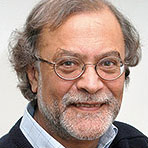
Azim Surani, Ph.D.
Position/Education: Dr. Surani is Director of Germline & Epigenomics Research, The Gurdon Institute, University of Cambridge, UK.
Research: Dr. Surani focuses his research on the mammalian germ cell lineage: how it is established and how it is programmed toward generating the totipotent state. He investigates the pluripotent state and its establishment during early development, as well as the mechanisms that regulate initiation of cell-fate decisions.

Tracy L. Bale, Ph.D.
Position/Education: Dr. Bale is professor of Neuroscience in Psychiatry at the University of Pennsylvania’s Perelman School of Medicine. She earned her Ph.D. from the University of Washington.
Research: Dr. Bale’s research interests include developing mouse models of stress sensitivity using genetic and prenatal manipulations to understand the mechanism and heritability for increased susceptibility to neurodevelopmental disorders, determining the molecular mechanisms by which stress factors influence appetite and reward, and examine the effects of maternal stress-sensitivity on fetal development and long-term physiological and behavioral responses.

Kwang-Yul Cha, M.D.
Position/Education: Dr. Kwang Yul Cha is one of the founders and the President of Asia’s first and most notably recognized society for fertility—Pacific Society for Reproductive Medicine. He is the Founder and President of CHA Health Systems (CHS), a global healthcare enterprise in Korea which owns and operates, among others: Hollywood Presbyterian Medical Center, the largest privately owned hospital in Los Angeles, California; 12 hospitals throughout Korea; CHAUM, a revolutionary anti-aging life center; Tokyo Cell Clinic (TCC) in Japan, which specializes in immunocyte treatment; Pangyo CHA Bio Complex, world-class bio R&D center; and fertility treatment and research centers in the U.S. and Korea encompassing over 15,000 IVF cycles per year, including the CHA Fertility Center, Seoul Station, the largest fertility clinic in Asia. In addition, Dr. Cha owns two KOSDAQ-listed companies including CHA Biotech, one of the largest biotech, stem-cell companies in Korea; bio- venture and healthcare investment companies; the Sung Kwang Medical Foundation; and CHA University and School of Medicine. He earned his M.D. at Yonsei University, School of Medicine, graduating summa cum laude. He was a Postdoctoral Scholar at Keck School of Medicine at the University of Southern California and Visiting Professor of Obstetrics and Gynecology at Columbia University.
Research: Dr. Cha is the author of numerous books, medical reviews and over 200 articles and papers published in medical journals. He has received more than 10 Prize Paper Awards conferred by major international societies for his authorship of selected journal articles and papers and delivered more than 200 special lectures at medical conferences and symposiums.
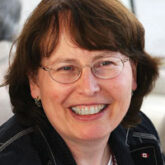
Barbara Hales, Ph.D.
Position/Education: Dr. Hales received her M.Sc. in Pharmacognosy from the Philadelphia College of Pharmacy and Science and Ph.D. in Pharmacology from McGill University. She joined the faculty in the Department of Pharmacology and Therapeutics at McGill University where she is currently a James McGill Professor.
Research: Her overall research goal is to understand how preconceptional or in utero chemical exposures adversely affect reproduction and development. Her current research, funded by the Canadian Institutes of Health Research (CIHR) and Natural Sciences and Engineering Research Council of Canada (NSERC), encompasses teratogen-induced signaling pathways, consequences of preconception paternal exposure to drugs on germ cell quality and progeny outcome, and the effects of known endocrine disruptors and their proposed replacements on the reproductive system and progeny outcome. Dr. Hales has published over 150 research articles and 40 book chapters in toxicology, birth defects research, and reproduction. She is coeditor of both editions of the Teratology Primer. She served as president of the Teratology Society and of the Society of Toxicology of Canada. She is a member of the US National Academies Committee on Endocrine-Related Low Dose Toxicity and co-chair of the Chemicals Management Plan Science Committee of Canada. She is currently serving as secretary general of the Executive Committee of the International Union of Toxicology (IUTOX).

Mark Hanson, Ph.D.
Position/Education: Professor Hanson is the founding Director of the Institute of Developmental Sciences at the University of Southampton and British Heart Foundation Professor of Cardiovascular Science. He is currently President of the International Development Origins of Health and Disease (DOHaD) Society. He was a founding director of a hospital research lab-based educational programme for adolescents, LifeLab, in Southampton and is also much involved in the wider public understanding of science through public lectures and popular science books. Dr. Hanson received his M.A. and DPhil from the University of Oxford and his PGCE from the University of Leeds.
Research: Dr. Hanson’s research concerns several aspects of development and health, ranging from how the environment during development (before and after birth) can affect the later risk of chronic noncommunicable diseases to population studies aimed at the early identification of risk so that timely preventative interventions can be made. He is particularly interested in the epigenetic processes that underlie such risks, and which may serve as valuable early life biomarkers.
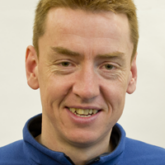
Dr. Rod T. Mitchell, Ph.D.
Position/Education: Dr. Mitchell is a Wellcome Trust-funded Research Group Leader within the MRC Centre for Reproductive Health at the University of Edinburgh and also a Consultant Paediatric Endocrinologist at The Royal Hospital for Sick Children in Edinburgh.
Research: His research interests focus on the role of the germ-stem-cell niche on germ cell development in the immature testis. This includes investigating the effect of exposure to pharmaceuticals (e.g. analgesics, chemotherapeutics) during fetal and prepubertal life using human-model systems. He has a major clinical and research interest in fertility preservation for prepubertal boys with cancer with a focus on developing strategies for removing and storing testis tissue from patients prior to potentially sterilizing treatments so that subsequent germ cell development can be achieved using in vitro or in vivo techniques. The center recently became the first in the UK to develop a fertility preservation program to store testicular tissue from young boys with cancer prior to their treatment. This work in males, combined with the well-established fertility preservation program for females, has resulted in a collaboration of scientists and clinicians working as part of the Edinburgh Fertility Preservation program, which Mitchell leads, for male fertility preservation. This unique collaboration combines clinical and laboratory research aimed at optimizing fertility for children and young adults with cancer. The center is also a full partner in the EU-funded FP7 Marie Curie ITN entitled “GROWSPERM” aimed at coordinating research into male fertility preservation for boys with cancer, and MRC also receives funding for male fertility preservation work from Children with Cancer UK.
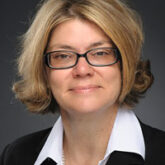
Renee A. Reijo Pera, Ph.D.
Position/Education: Renee Reijo Pera is Vice President of Research and Economic Development at Montana State University in Bozeman, Montana. She came to MSU from Stanford University, where she was the Director for the Center for Human Pluripotent Stem Cell Research and Education and the Center for Reproductive and Stem Cell Biology, as well as head of the doctoral program in stem cell biology and regenerative medicine. She received her Ph.D. from the Whitehead Institute for BioMedical Research at the Massachusetts Institute of Technology, in Cambridge, Massachusetts.
Research: Dr. Reijo Pera’s work in imaging algorithms was recognized by Time magazine as one of the top 10 biomedical breakthroughs of 2010, and she was named one of 20 Influential Women in America by Newsweek in 2006. Dr. Reijo Pera is also George D. Smith Professor of Stem Cell Biology and Regenerative Medicine at Stanford’s Institute for Stem Cell Biology and Regenerative Medicine and in the departments of genetics and obstetrics and gynecology. Her research is aimed at understanding the genetics of human development and in characterizing the basic properties of normal and disease-bearing human pluripotent stem cells, especially their ability to differentiate to all cell types. Reijo Pera’s work has garnered more than $28 million in research awards, including several ongoing grants from the National Institutes of Health.
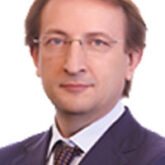
Carlos Simon, M.D., Ph.D.
Position/Education: Carlos Simón is a Board Certified and Full Professor of Obstetrics and Gynecology at the University of Valencia; Adjunct Clinical Professor, Department of Obstetrics and Gynecology, Stanford University School of Medicine, California; Scientific Director of IGENOMIX, and former Scientific Director of Instituto Valenciano de Infertilidad (IVI).
Research: Dr. Simón’s basic and clinical research has contributed to the advance of Reproductive Medicine, specifically in the understanding of human endometrial receptivity, embryo viability, embryonic implantation and endometriosis. He discovered the relevance of the interleukin-1 system in embryonic implantation, and demonstrated the deleterious effect of high hormonal levels in patients with high response to gonadotrophins thus modifying the established clinical practice. He pioneered the concept that human oocytes are affected in endometriosis, thus changing the clinical practice in oocyte donation. He proposed a new embryo coculture system, now successfully used worldwide. His basic research on endometrial receptivity led him to create and patent a customized array named endometrial receptivity array (ERA) for the molecular diagnosis of endometrial receptivity. He has been awarded “Prize Jaime I 2011 in Medical Investigation” for his pioneering work in human endometrial receptivity disorders.
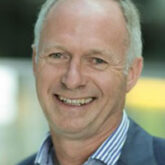
Position/Education: Andrew Sinclair is Deputy Director of the Murdoch Childrens Research Institute at the Royal Children's Hospital in Melbourne. He is also a Professorial Fellow in the Department of Pediatrics at the University of Melbourne.
Andrew Sinclair, Ph.D.
Research: Dr. Sinclair leads an NHMRC Program focusing on the molecular genetics of gonad development and its impact on patients with disorders of sex development (DSD) and is part of a team awarded a National Centre of Excellence focusing on the regulation of male germ cell differentiation and its impact on infertility and testicular cancer. His contributions have been fundamental to the advancement of the field, including the identification and characterization of the human testis determining gene (SRY) and other genes critical for gonad development. He has also implemented new, accurate, rapid and comprehensive diagnostic procedures to improve outcomes for patients with DSD.
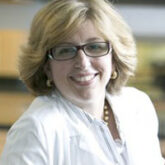
Teresa K. Woodruff, Ph.D.
Position/Education: Dr. Woodruff is the Thomas J. Watkins Professor of Obstetrics & Gynecology, Feinberg School of Medicine, Professor of Molecular Biosciences, Weinberg College of Arts and Sciences, and chief of the Division of Fertility Preservation at Feinberg. She received her Ph.D. from Northwestern University.
Research: Dr. Woodruff pioneered the field of oncofertility, and has worked to translate her research to the clinical care of women who will lose their fertility due to cancer treatment. Her lab studies the development of the ovarian follicle, identify markers and determinants of egg quality, and discover how this basic biology can be applied to patients. This research includes the biological, cellular, and molecular mechanisms that regulate the development of the ovarian follicle, such as the study of endocrine, structural, and other environmental cues in the ovary, and an understanding of cell death within the follicle and supporting cells.

Vivian W. Pinn, M.D.
Position/Education: Dr. Pinn is Senior Scientist Emerita, National Institutes of Health (NIH). She was founding Director of the Office of Research on Women’s Health and also Associate Director for research on women’s health at NIH, positions she held from 1991 until her retirement in 2011. She came to the NIH from Howard University College of Medicine, where she had been professor and chair of the Department of Pathology since 1982, and had previously held teaching appointments at Harvard Medical School and Tufts University. A graduate of Wellesley College, she earned her M.D. from the University of Virginia School of Medicine, being the only woman or minority in her class. She undertook postgraduate training in pathology at the Massachusetts General Hospital.
Achievements: Dr. Pinn has received numerous honors and recognitions, and has presented her perceptions of women’s health and sex/gender research, minority and women’s health and health disparities, as well as challenges in biomedical careers, to audiences both nationally and internationally. Her implementation of the congressional mandate to include women and minorities in clinical research funded by the NIH is evidence of an effort she continues to champion. She has long been a vocal advocate for women and minorities in biomedical science careers. She is a fellow of the American Academy of Arts and Sciences and was elected to the National Academy of Medicine (formerly the Institute of Medicine (IoM)) in 1995. Dr. Pinn has received fourteen honorary degrees of science, law, and medicine. The University of Virginia School of Medicine has named one of its four advisory medical student colleges “The Pinn College” in her honor; in the fall of 2017, UVA will dedicate its medical education building as “Pinn Hall.” She has held leadership positions in many professional organizations, including that as president of the National Medical Association. Dr. Pinn currently serves on the Board of Trustees/Advisors of Thomas Jefferson University and Tufts University School of Medicine, and is a member of the Committee on Women in Science, Engineering and Medicine of the National Academies. Lectures in women’s health and/or health disparities named for her have been established at the NIH, the Women’s Health Congress, and the National Medical Association. In December 2016, the UVA medical school announced the inaugural Pinn Scholars program to support and recognize mid-level faculty in efforts to take their research in novel directions. Her oral history is included in the National Library of Medicine’s exhibit on women physicians: “Changing the Face of Medicine,” in UVA’s project, “Explorations in Black Leadership,” conducted by Julian Bond, and in the HistoryMakers collection which is now housed in the Library of Congress.

